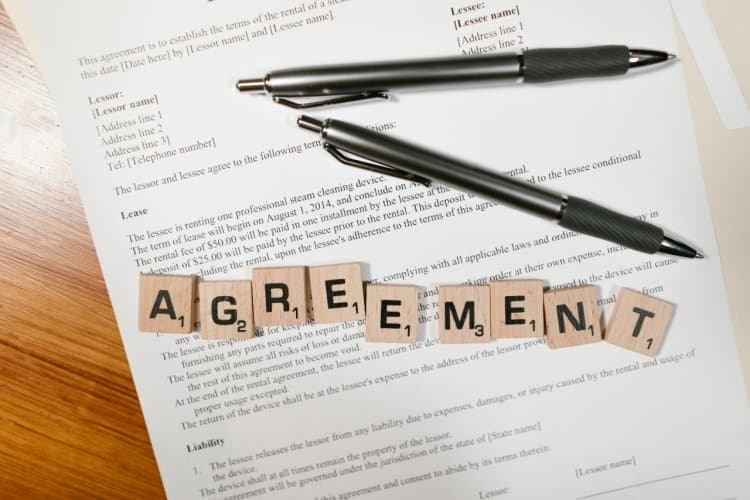
Provisions for Leasing a Property in the UAE
The UAE has rental and ownership properties that range from high-rise flats and villas to small societies. Expatriates living in the UAE have a variety of rental possibilities. Dubai is the most expensive city while looking at house costs. Abu Dhabi is in close second place. Sharjah, Fujairah, and Al Ain are all less expensive. The country has laid down some rules and regulations that need to be followed to lease or rent a particular property.
● Searching for a property
Available accommodation can be searched using local newspapers and magazines, and registered real estate brokers and private property websites can be used. There are also properties available for rent directly from the owner. Many UAE companies provide accommodation for their employees; however, some just offer a stipend. Therefore, an individual can search for a place through the following means:
○ Simsari (a website of Ejari)
○ Property Finder
○ Bayut
● Rates of rent
The city-states of Dubai and Abu Dhabi attract so many expats; hence housing in the UAE is plentiful yet costly. Although the UAE's average rent has decreased by 30% in recent years, expats may still expect to pay roughly half of their earnings on rent alone.
The cost of renting a home is determined by its location and size. Tenants can pay their rent in one lump sum or installments, depending on what the broker/landlord has agreed to. Some brokers may also charge a commission fee of up to 5% of the total rent.
To complete a lease contract, the renter must produce identification documents to the landlord and real estate agent. This includes:
○ a copy of his passport
○ a valid residency visa
○ an Emirates ID
○ post-dated cheques (covering the agreed-upon lease duration)
How to register a lease agreement?
Landlord-tenant lease agreements must be registered with the appropriate authority in each emirate. To connect the utility services required for the rental property, lease contracts must be written. This covers utilities such as water, electricity, gas, and telecommunications.
Abu Dhabi
Landlords in Abu Dhabi must record leasing contracts in the city's tenancy contract registration, the Tawtheeq system. Landlords can use the Abu Dhabi City Municipality's website or Customer Service Centers to register lease contracts in 'Tawtheeq.' A housing fee of 3% of the annual rent will be levied over 12 months after the lease contract has been recorded. This money will go toward the tenant's monthly water and power costs.
The Abu Dhabi tenancy law’s Article 7 also states that during the rental time, unless otherwise agreed, the landlord is responsible for maintaining the rented property and doing all necessary repairs, excluding rental maintenance. However, the following limitations to the tenant's remedies are present in Abu Dhabi:
a) Suppose a tenant fails to submit a disagreement to the Rental Dispute Centre within one month of being deprived of use or enjoyment of the rented property. In that case, he forfeits his right to do so unless the tenant can demonstrate an acceptable explanation for the delay (article 9).
b) In practice, the tenancy contract specifies the parties' respective repair and maintenance requirements.
c) When referring to the parties' respective maintenance obligations, tenancy contracts frequently employ "major maintenance" and "minor maintenance."
Dubai
Landlords in Dubai must register lease agreements with Ejari, the RERA's online platform. Tenants must pay Dubai Municipality housing fees, which are determined at 5% of the annual rental rates. The housing fees increase the monthly power and water expenses.
Under Dubai's local law No. 43 of 2013, rental increases in the emirate can be imposed when the average rent in the region is compared to the RERA increase calculator.
According to the Dubai Tenancy Law:
a) Unless the parties agree differently, the landlord is responsible for the upkeep and repair of any flaws in the leased property that may affect the tenant's planned use of it (article 16).
b) The landlord is accountable for any defect, damage, deficit, or wear and tear to the leased property caused by any cause other than the tenant's fault (article 17).
c) The tenant shall return the rented item to the landlord in the same condition he received, except for everyday wear and tear (article 21).
Sharjah
Lease contracts are filed with the Sharjah Municipality in Sharjah. The Rent Regulation Department handles the leasing contracts in Sharjah.
Disputes Over Rentals
Whenever a dispute arises during the rent period, the landlords and tenants can contact the following:
The Rent Dispute Settlement Committee in Abu Dhabi
The Committees Department for Settling Rental Disputes are specialized in urgently adjudicating the disputes arising concerning rental relations between the contracting parties in the rental agreement.
The Rental Dispute Section, Sharjah Municipality for disputes
The Rent Regulation Department is in charge of attestation of rental agreements, landlord cards approval, and building naming in Sharjah. The agency is also in charge of resolving leasing problems, sending them to a competent committee for resolution, and enforcing court orders.
Important things to know while renting a property in the UAE
○ In the United Arab Emirates, tenancy agreements are for a year.
○ The contract will be drawn up in four to five working days. The agent completes the documentation in cooperation with the landlord.
○ For the tenancy contract to be written out, you must send a copy of your passport and a copy of your resident visa.
○ A security deposit is also required. Please keep the receipt safe since you'll need it when you apply for a refund at the end of your term.
○ Contracts are enforceable for a year, so if you leave early, you'll have to pay the penalty, which is normally two months' rent plus two months' notice.
For any enquiries or information, contact info@thelawreporters.com or call us on +971 52 644 3004